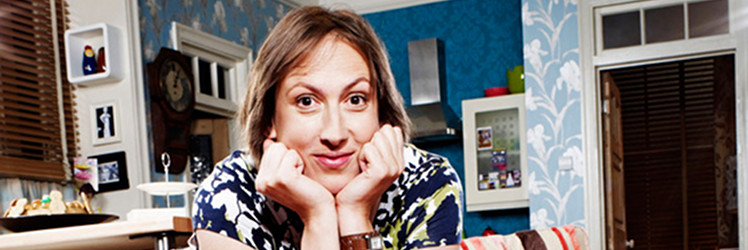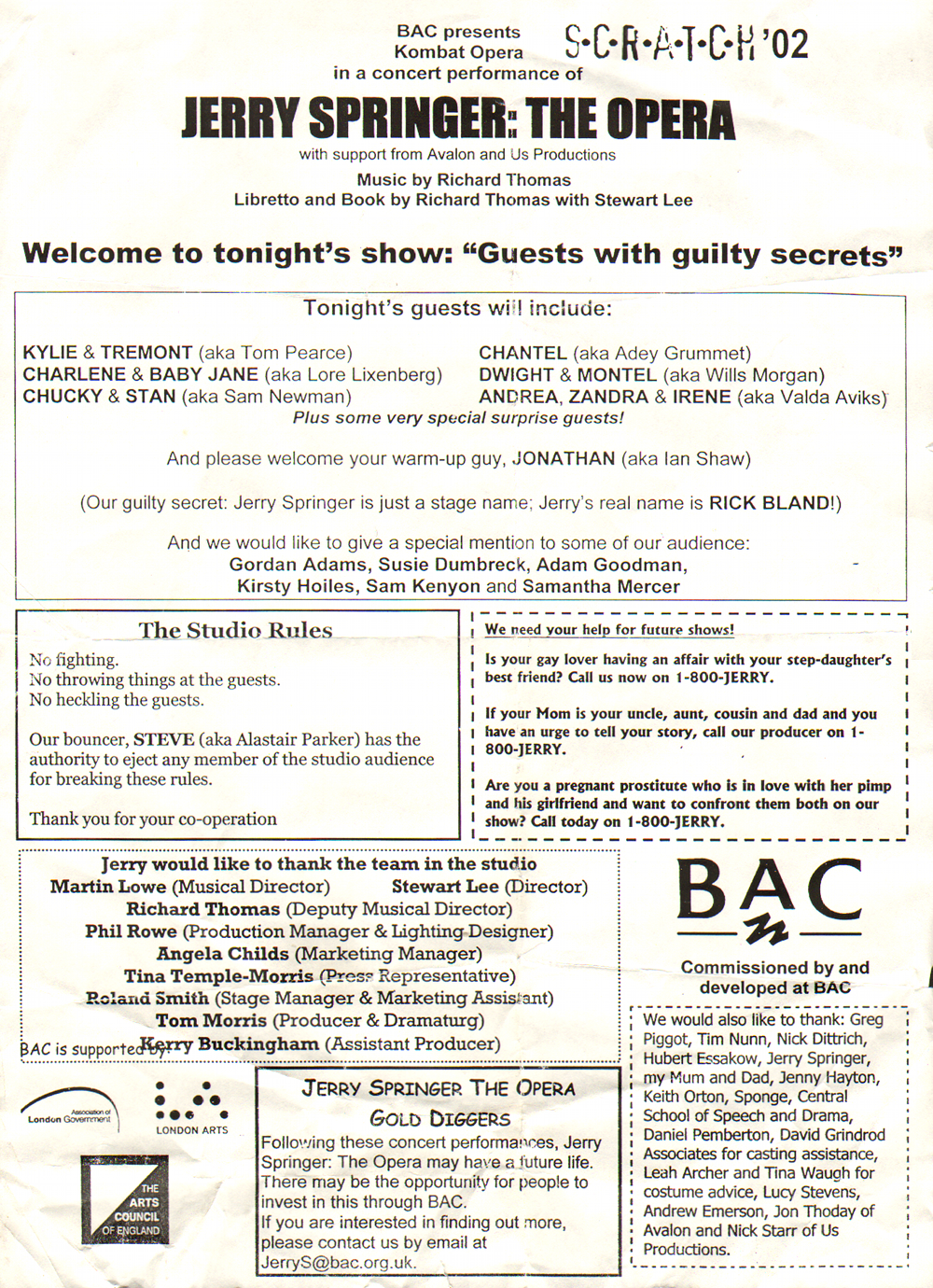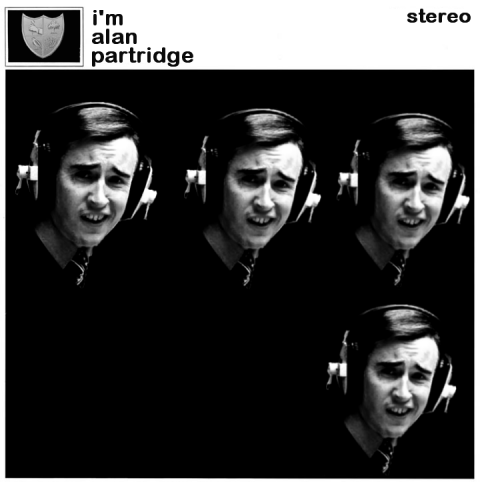Oooh, this is a fun idea from Tim Bray – type each first letter of the alphabet into your URL bar, and see what the browser’s guess is for where you want to visit. Let’s see what well-rounded portrait this gives of me, shall we?
The Beginning
Look, mum, I did an interview!
http://www.ganymede.tv/indepth/the-beginning
Nic Farey, founder of The Official Red Dwarf Fanclub, and ex-team member Maxine Lehmann, discuss early Red Dwarf fandom – something I’ve always been fascinated by. Even if you’re not a hardcore Dwarf fan, though, there’s some interesting stuff there about the nature of fandom before most people had the internet.
Also: it contains my favourite answer to any interview question I’ve ever asked…
# As every galaxy was formed in less time than it takes to sing this song…
A thought crossed my mind the other day. (This is quite rare, so savour it.) When talking about favourite telly theme tunes, people often mention ones from the 90s and earlier. Which is eminently understandable – apart from any perceptions about quality, television is less and less likely to give programmes time to have a decent theme tune these days.
Still, it’s not like they don’t exist. So, as a celebration of great theme tunes post-2000, I asked the Twitter hive mind for their opinions. Their thoughts follow; before I carry on with the next stage of my little plan, are any of your favourite 21st century theme tunes missing? Let me know below…
Update (26/01/11): Loads more of your suggestions added!
Update (31/01/11): More suggestions added!
Miranda, Catherine and Andrew

In a rare guest article here on Dirty Feed, script editor and writer Andrew Ellard takes issue with the poor quality of debate around the subject of studio audience sitcom…
This little piece in The Telegraph caused a minor kerfuffle just before Christmas. Catherine Gee gave her (negative) opinion on Miranda and Miranda’s fans, lent voice by Twitter and the ever-present ‘comment’ option, responded angrily.
Gimme Gimme Gimme Correct Aspect Ratios
Some things I write, I know at least some people will be interested. At other times, I decide to write articles about Gimme Gimme Gimme and aspect ratios.
Still here? Amazing. Buckle up, here we go.
*CAT
Sometimes I feel I do nothing more than to waste my life tediously pointing out that just because something is old, it doesn’t mean it’s worthless. Sometimes, however, even I have to admit that society has moved on. Slapping hot girls on the arse with no warning is no longer an acceptable part of society, and nor are public domain libraries. Going through a catalogue, selecting your discs, filling out the order form, writing out a cheque, popping it all in the post, and waiting for a week has been replaced by the simple click of a mouse.
However, going through yet another of my boxes recently, I found my old paper catalogue for BBC PD; a BBC Micro public domain library. It’s catalogue no. 15, from June 1993; vague memories tell me it was the penultimate one before the library closed down, but I can’t confirm. As I can’t find any scans online, I thought some of you might find it interesting. As ever, apologies for the bad state of the source material and my terrible scanning:
BBC PD Summary Catalogue No. 15 (PDF, 32MB)
Sadly, the library closed down before I could order more than one set of discs. Thanks to the wonders of the internet, however, most of the library is available from 8bs.com – search the page for “BBC PD Library”. (The disc-based version of the catalogue is also available.) Finally, I can hear all that music removed for copyright reasons…
1-800-JERRY
Whilst rummaging through some old boxes yesterday, I had a choice. I could either scan part of an “erotic” “story” I wrote with a friend at primary school about a classmate, or an old leaflet from one of the Battersea Arts Centre productions of Jerry Springer: The Opera.
Luckily for you, I chose the latter. This is from the February 2002 run, when the production was still quite different from its final form:
Altogether more wholesome than filth about 11-year-old girls.
“I’m not going to talk about it…”
Now That’s What I Call Alan Partridge
UPDATE (02/04/17): The link below is now dead, and this album now resides here.
Found lying at the bottom of a drawer at the now-defunct Peartree Productions…
I’m Alan Partridge Soundtrack (142MB, 256kbps MP3)
Yeah, but what pixels (NSFW)
In my early teens, access to hardcore porn was a rarity. There was a Joy of Sex on the top shelf which I used to “borrow”, and Cosmopolitan ensured my life would follow its usual route as a sitcom character. Unfortunately, I did spend time writing a BBC BASIC program which would ask for my name, and then provide random dirty responses to my one-handed tapping. This is quite possibly the saddest thing anybody has ever done ever, and I certainly won’t be digging it out of the box of discs upstairs any time soon.



